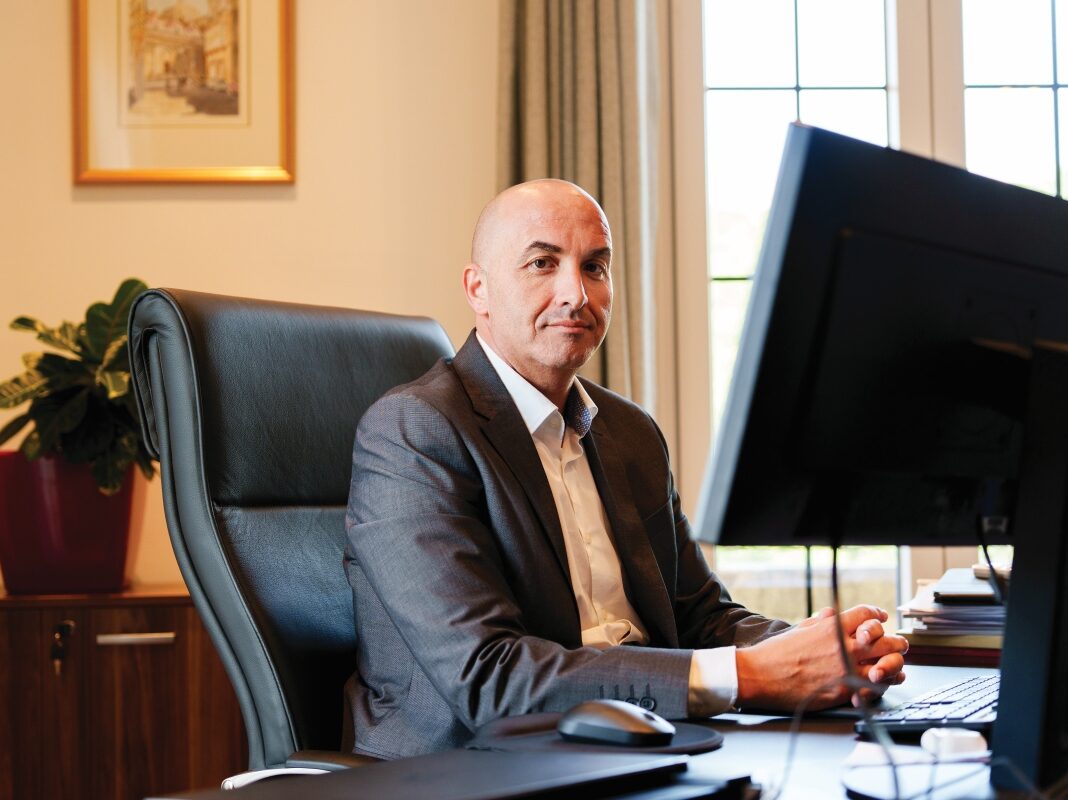When Malta’s Opposition Leader Alex Borg floated the idea of trialling a four-day work week within the public sector, debate quickly followed.
Dr Borg’s proposal – to pilot the concept in select Government departments before considering wider adoption – was met with immediate pushback from the Malta Employers Association (MEA), which called it an “unrealistic populist proposal” amid the country’s ongoing labour shortages.
While Finance Minister Clyde Caruana has repeatedly warned that productivity must rise before any such reform can be justified, international evidence – including the UK’s landmark four-day week pilot – offers valuable insights into both the potential and pitfalls of shorter working weeks.
The UK experiment: 61 companies, 2,900 workers, six months
Between June and December 2022, the UK ran the world’s largest coordinated four-day work week trial involving 61 companies – two-thirds of which had fewer than 25 employees – and around 2,900. Organised by the non-profit 4 Day Week Global, Autonomy, and researchers from the University of Cambridge and Boston College, the pilot tested whether maintaining 100 per cent of pay for 80 per cent of working time could sustain productivity.
The results were striking:
- 92 per cent of participating companies decided to continue with the model after the trial.
- Revenue rose by an average of 1.4 per cent, and by 35 per cent when compared to the same period in previous years.
- Staff turnover fell by 57 per cent, and sick days dropped by 65 per cent.
- Nearly 40 per cent of employees reported lower stress levels, and 71 per cent said they felt less burned out.
These outcomes, according to researchers, highlight that a reduction in working hours need not come at the expense of business performance – provided it is implemented carefully.
Not one-size-fits-all
The pilot’s success rested on flexibility. Companies were free to design models that suited their operations: Some closed entirely on Fridays (“fifth day stoppage”), while others used staggered schedules or performance-linked conditions.
“Resisting the idea that the four-day week must be one-size-fits-all was key,” the report noted. For instance, a video game studio opted for everyone taking Fridays off to aid collaboration, while a marketing agency alternated between Mondays and Fridays off to ensure client coverage.
This flexibility could prove essential in Malta, where small and micro-enterprises dominate the economy and where many sectors – from tourism to retail and logistics – rely on continuous operations.
Ambition versus reality
In Malta, the conversation remains largely theoretical. Dr Borg’s proposal to test the model in the public sector mirrors the approach taken in Iceland, where shorter work weeks were successfully introduced in Government departments before being considered for wider rollout.
However, the MEA’s Director General Kevin Borg cautioned that the country’s workforce shortages and productivity levels make such a reform “unsustainable” at this stage. The association warned that introducing more favourable working conditions in the public sector could exacerbate Malta’s “two-tier system,” drawing more talent away from the private sector.
“Proposals that disregard the realities of productivity and labour market dynamics risk creating unsustainable working conditions and false expectations that will ultimately harm both the workforce and the broader national interest,” the MEA said.
What local trials reveal so far
Two Maltese companies have already experimented with shorter work weeks.
Switch, a digital and brand agency, gives employees Fridays off in summer. CEO Richard Muscat Azzopardi had described the outcome as largely positive: Staff were “better rested” and “more focused,” but the reduced week also made meeting deadlines harder and required clients to adapt to the change.
Another company, CrabNebula, operates on a model of four nine-hour days, completing the standard 36-hour week by compressing hours. Both cases demonstrate the model’s potential benefits for morale and productivity but also highlight the coordination challenges for client-facing firms.
Mr Muscat Azzopardi believes the benefits outweigh the drawbacks. “Life is more balanced out when you have a longer weekend, and the work you do is far more productive,” he wrote, though he acknowledged that “there is no perfect system for all.”
What the data tells employers
The UK study shows that for most companies, revenue remained stable or grew modestly – suggesting that reduced hours did not harm profitability. However, the study also identified practical concerns relevant to Malta’s business environment:
- Work intensity increased: 62 per cent of employees reported a faster work pace.
- Implementation required upfront planning: Firms that failed to redesign workflows or automate repetitive tasks struggled to maintain output.
- Client education was critical: Some companies found customers initially resistant to the idea of staff being unavailable one day a week.
For businesses considering similar pilots, experts recommend defining clear performance metrics, ensuring fair workload distribution, and maintaining communication with clients and stakeholders.
Could it work in Malta?
Implementing a four-day work week in Malta would require a careful balance between aspiration and pragmatism. Productivity levels, skill shortages, and economic structure vary sharply between industries. Sectors such as manufacturing, healthcare, and hospitality depend heavily on shift work and may require customised solutions such as staggered or rotating schedules.
Moreover, Malta’s chronic traffic congestion and limited public transport capacity make a case for experimenting with alternative working models that could reduce commuting and emissions. Advocates argue that a reduced week could ease congestion and improve environmental outcomes if designed strategically.
A debate worth having
The UK’s pilot shows that the four-day work week can work – but only when productivity gains offset shorter hours and when flexibility is built into the model.
For Malta, the conversation is just beginning.
Whether it becomes a cornerstone of future labour policy or remains an aspirational idea will depend on whether policymakers, employers, and unions can agree on one key question: How to make “working smarter, not longer” a realistic goal in a small, service-driven economy.
Additonal reporting to follow tomorrow on the strategies different companies employed to adapt to a four-day workweek
Leading MAPFRE Middlesea into the future
CEO Etienne Sciberras details how strategy, culture and social purpose are shaping both MAPFRE Middlesea and his leadership approach
FinanceMalta signals ‘new approach’ to promotional strategy
'FinanceMalta will place greater emphasis on equipping members with the tools needed to promote Malta effectively in priority markets'
From roses to burgers: Wolt data reveals how Malta is redefining love this Valentine’s Day
Wolt’s Valentine’s data highlights a clear shift towards private, practical gifting






